Harnessing the latest technology for greener fabrics, fashion brands are pivoting to cleaner approaches ensuring sustainable practice and uncompromised quality go hand in hand.
In the past decade, sustainable efforts within the fashion industry have shifted from merely acknowledging the impact of its production methods to actively seeking new ways of sourcing, making, and supplying apparel. Consumer demand for transparency on sustainable and quality items made from ethically sourced materials has driven a sea-change, too.
Brands paving the way are proving that, with technological advancements, their products maintain exceptional quality but their approach is with a conscious effort for reducing the impact to our environment. From long-standing eco-advocator Stella McCartney, Closed’s decades-long sustainable agenda and Berlin’s GMBH, a brand using only deadstock materials in their collections to sneaker brands Veja and All Birds developing fabrics from recycled plastic bottles and ensuring ethical production from start to finish.
This year brings particular significance to the fashion industry as Covid-19 has rapidly altered the way brands and designers are operating. Seasonal collections have been spotlighted and the exorbitant investment in fashion shows are currently in question. A growing group of designers and brands are advocating to go season-less or only show twice instead of five times a year. Resetting the fashion calendar and reimagining fashion shows are just two steps in a long chain of adjustment for the industry. And for high street fashion retailers there is no less pressure to pivot with new measures.
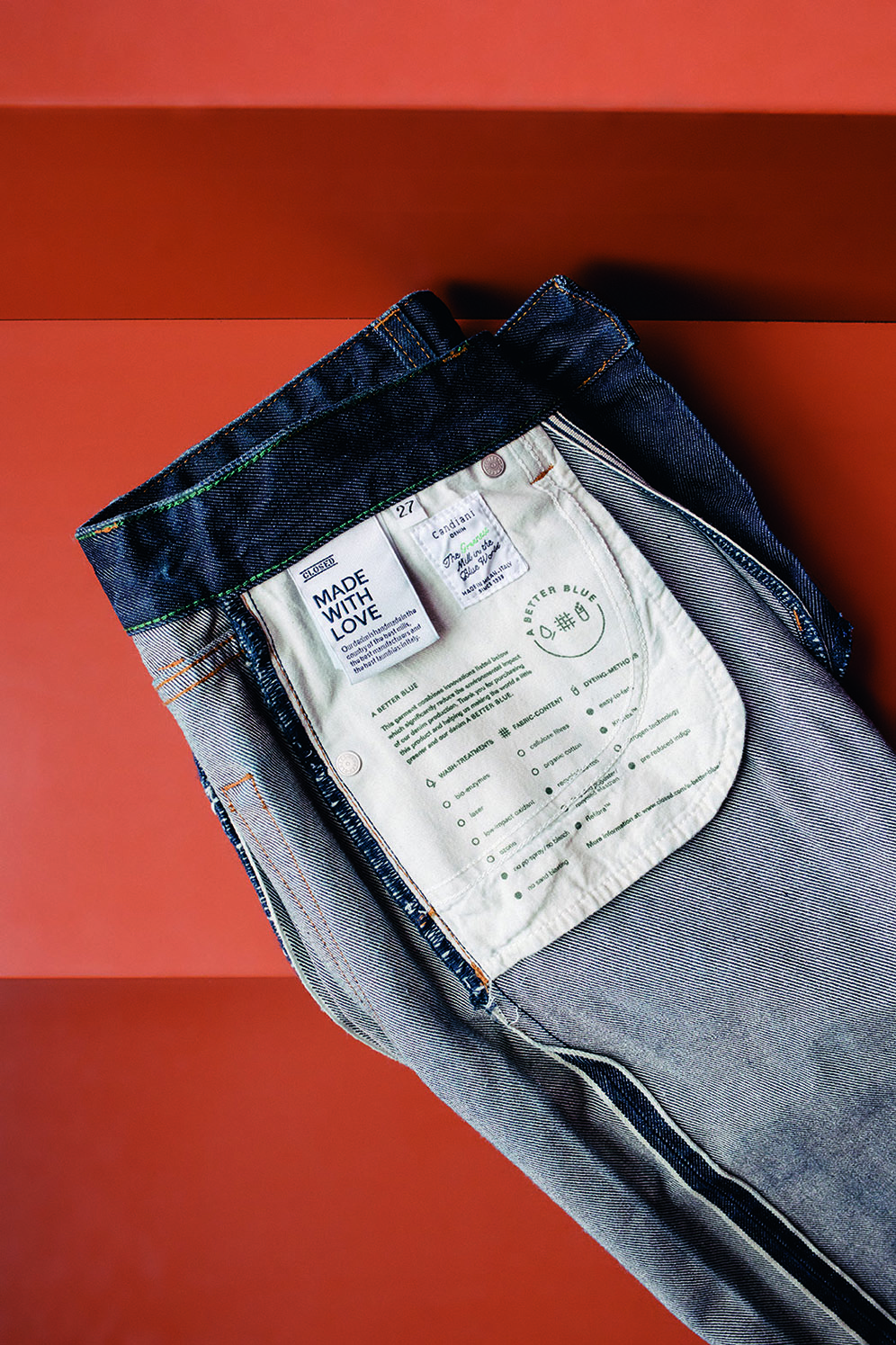
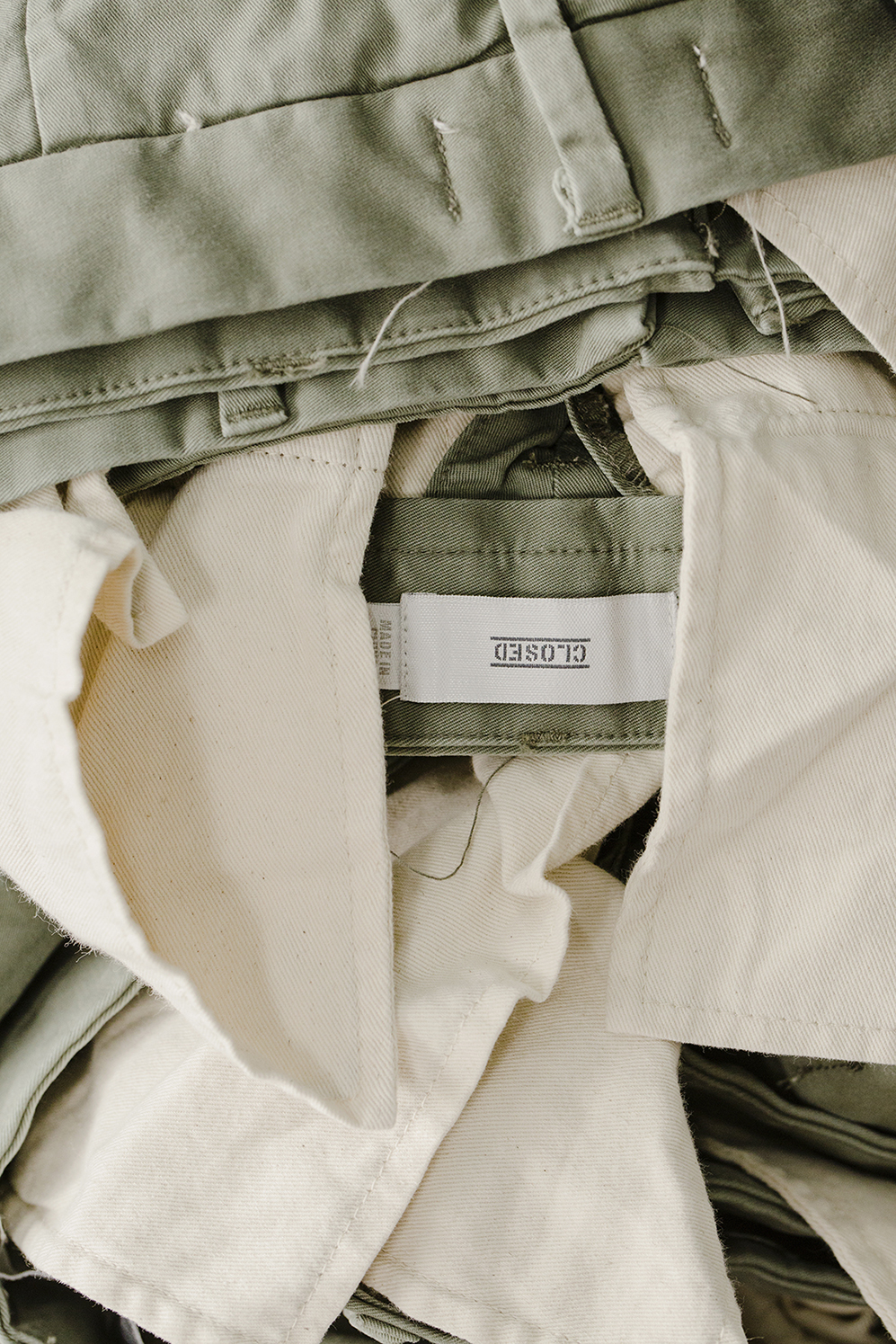
“The coronavirus also presents fashion with a chance to reset and completely reshape the industry’s value chain — not to mention an opportunity to reassess the values by which we measure our actions,” states the latest 2020 report from the Business of Fashion and McKinsey & Company. With a shift in societal norms and the most rapid downturn of our retail economy in recent history, the fashion and retail sector are in a particularly vulnerable position.
One thing that is already apparent is a need to address the elephant in the room. Many, if not most consumers are now all too aware of how polluting the fashion industry is and addressing this crucial issue has to be part of the survival strategy. The BoF report raises the point that, “to reach increasingly frugal and disillusioned consumers, brands must find inventive ways to regain value and rethink their broader business mission.”
“The coronavirus also presents fashion with a chance to reset and completely reshape the industry’s value chain.”
For many brands, that broader mission has been an ever-increasing move towards circular fashion. It’s no longer enough to learn that the T-Shirt you buy is made from organic cotton, it needs to be evident that the brands we buy into are adopting sustainable approaches while simultaneously ensuring a long-lasting, quality garment at a fair price. From Patagonia’s leading approach with their ongoing repair service and infamous ‘Don’t Buy this Jacket’ campaign to Everlane’s ‘Radical Transparency’ highlighting the factories they work with and the cost price to produce each garment to H&M’s Conscious collection and Adidas x Parley up-cycling ocean plastics, the list of efforts is, admirably high.
When the argument for a greener future results in consumers shopping less, how does this translate within a brand? “We are convinced that a crucial aspect of sustainability is lower, but better consumption,” states Gordon Giers, CEO of German fashion brand Closed in their latest sustainability report. While sustainability is a common buzzword in the industry, it has played a central role in the company from the outset. Created in 1978, the company has been delivering contemporary womenswear and menswear with an uncompromising standard for quality. Known for their denim, each collection is made in Italy with the utmost level of craftsmanship. Arguably, sustainable practices were not as prevalent in the ’70s and ’80s as they are today, but Closed’s goal from the get-go was to, “produce carefully made, thoughtfully designed favourites for our customers to happily wear again and again, instead of constantly buying new fast fashion items,” continues Giers..

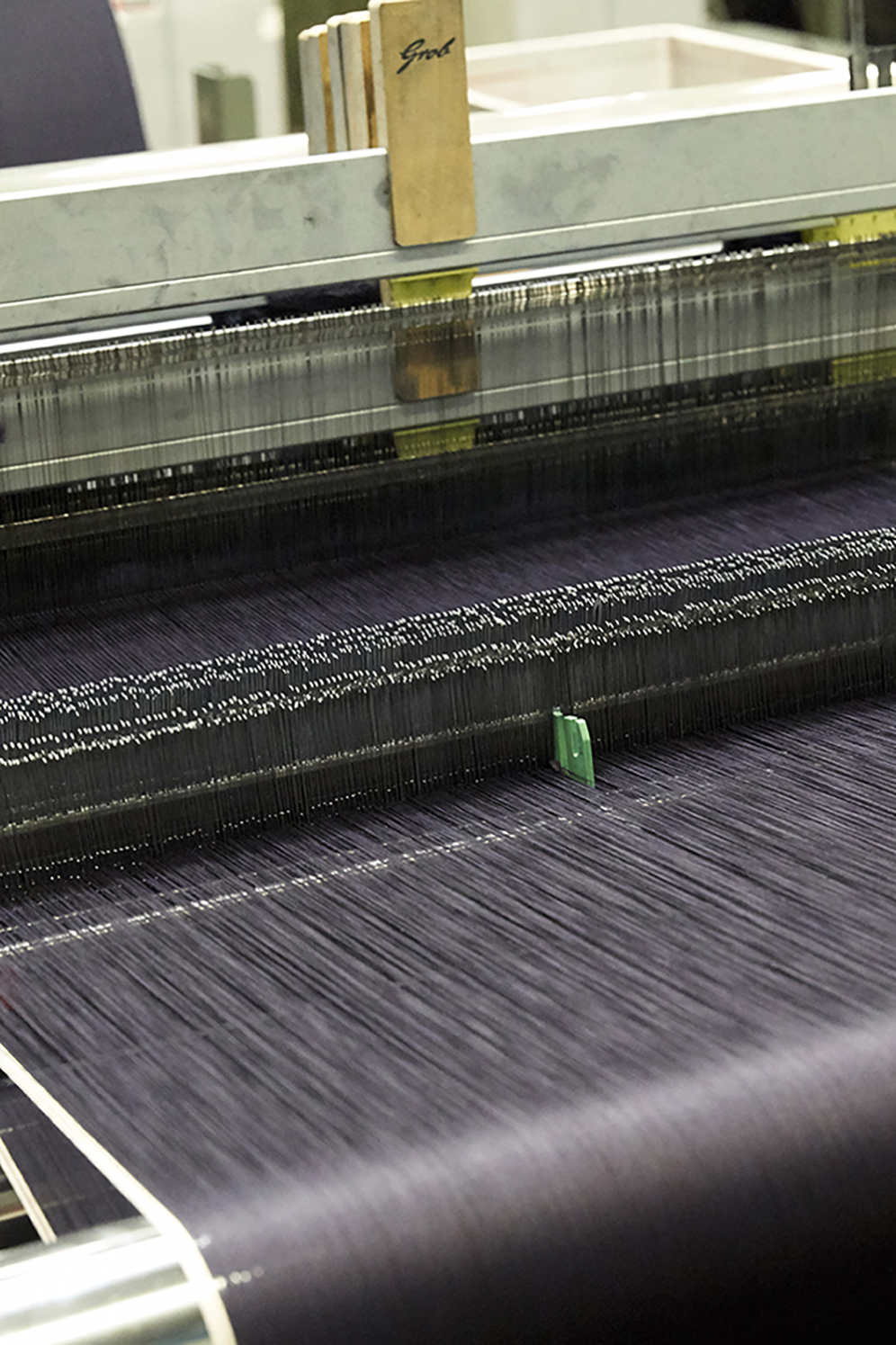
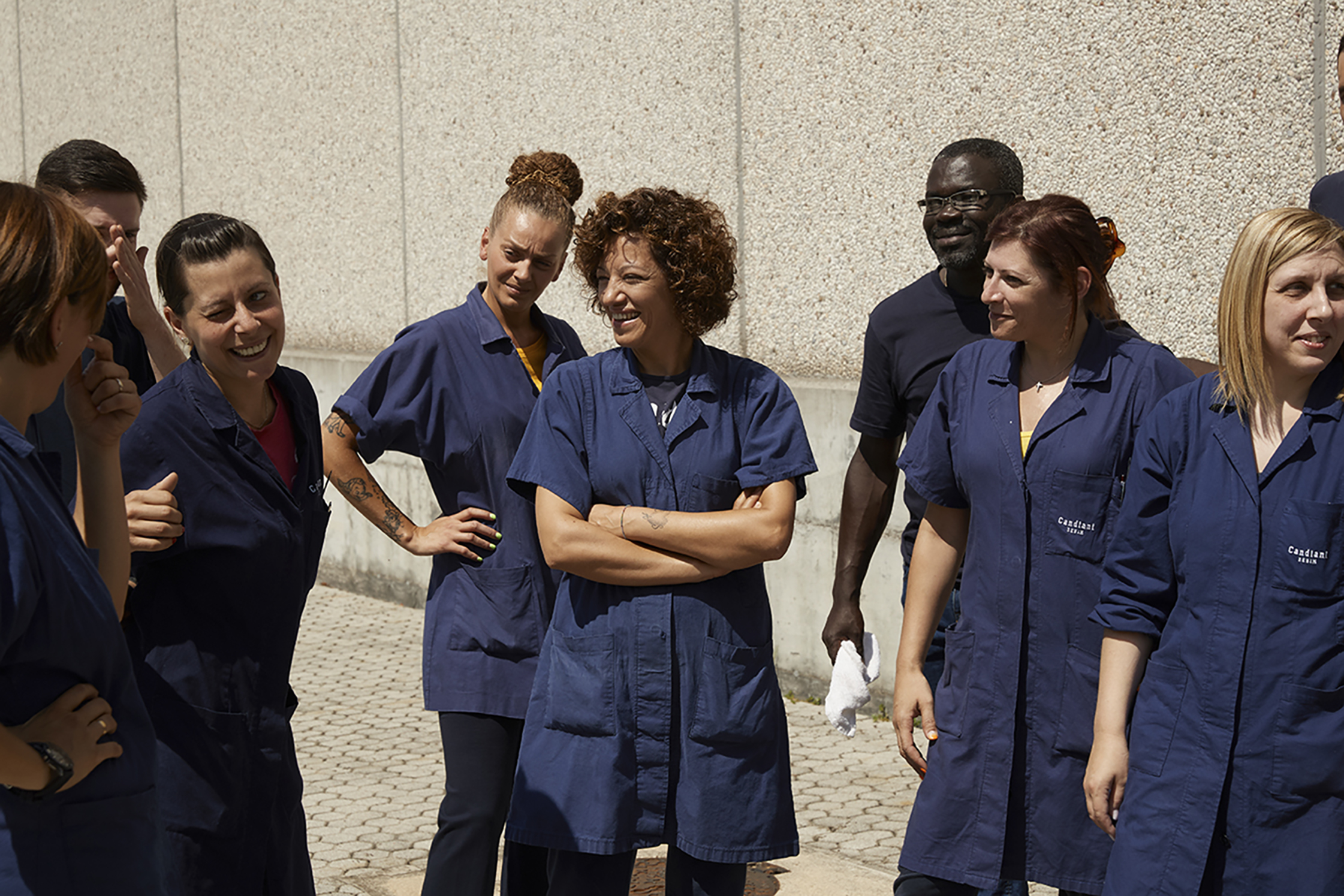
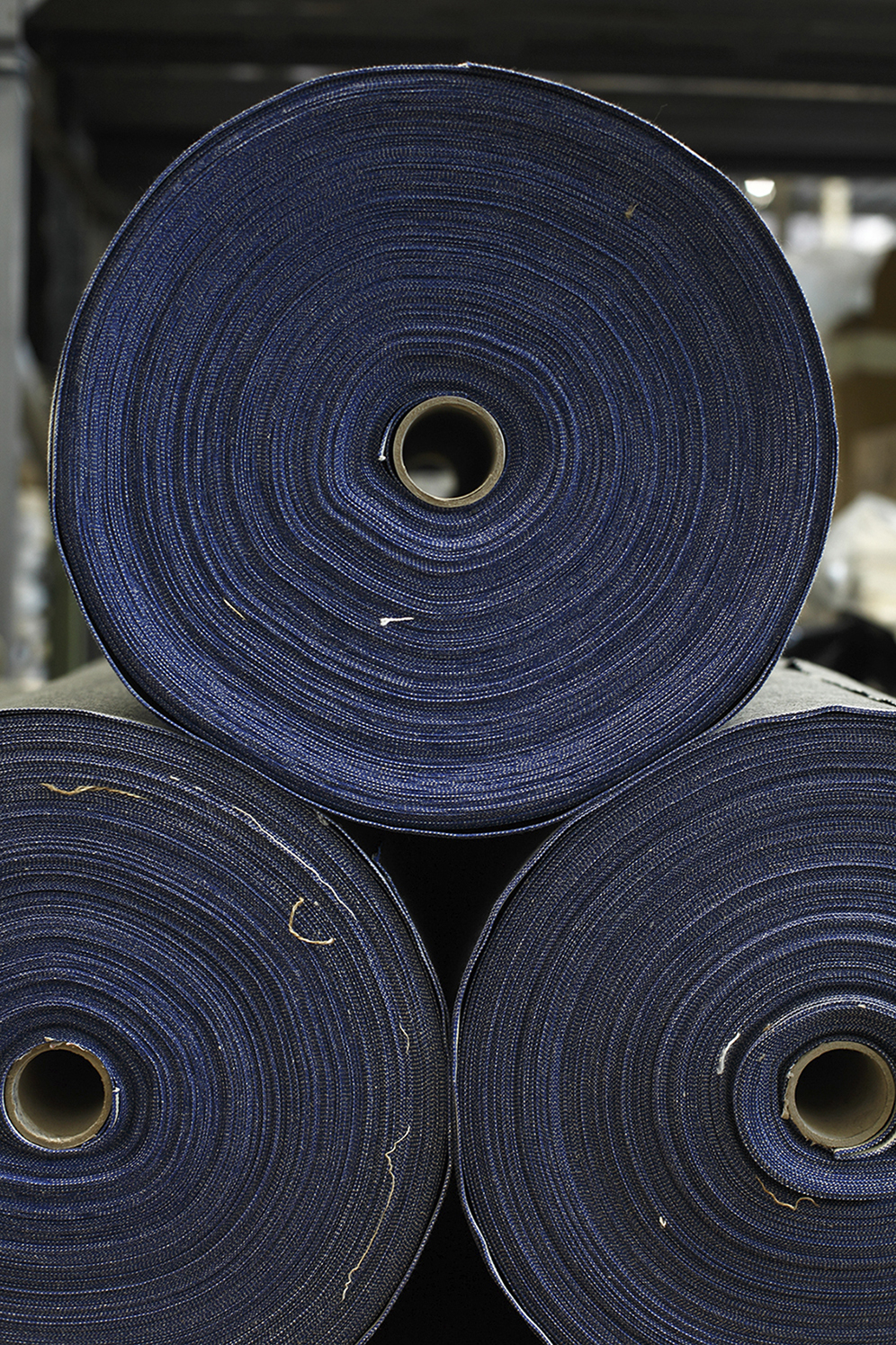
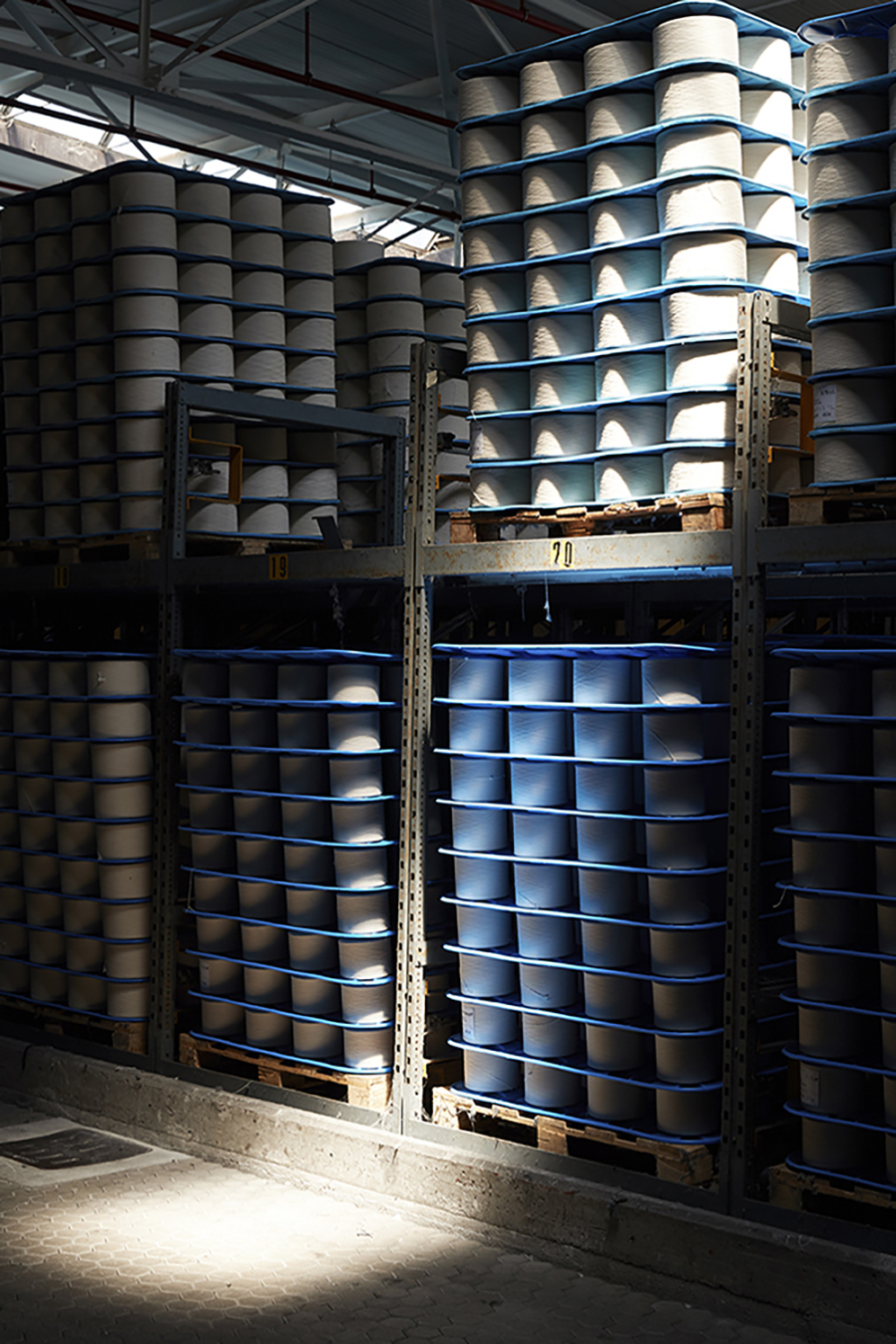
“No one who wants to take care of the planet can continue in this direction anymore because we know there are alternatives and it would be criminal not to use them.”
In the past four decades, Closed has become a trusted retailer for consumers looking for quality clothing that lasts. Yet, in the last few years, the design team have realized this is no longer enough. They have been consciously (and quietly) striving to reduce the environmental impact of production and harness the latest technologies available for a cleaner and more ecologically responsible product. But how easy is this to do when you’re making denim, which is after all, one of the biggest pollutants in the industry?
“Everyone knows how polluting denim production was, and in certain areas still is,” says Uwe Kippschnieder, denim developer at Closed. “No one who wants to take care of the planet can continue in this direction anymore because we know there are alternatives and it would be criminal not to use them,” he adds from their Hamburg headquarters. “We are in constant and close contact with our mills, laundries and manufacturers in order to follow technological developments and innovative solutions. We take great care to integrate these new production methods and technologies in our process,” adds Nina Schlüter, who has worked as head of production for Closed for the last 15 years.
At the core of the brand is their denim collections. Modern designs that are effortless but made with careful attention to detail and working with the best materials. For Uwe this means partnering with the finest Italian mills. Partnering with Candiani, Closed have expanded their sustainable approach to denim. Together with this responsible Italian denim mill, Closed are able to produce their reduced-impact line, A Better Blue.
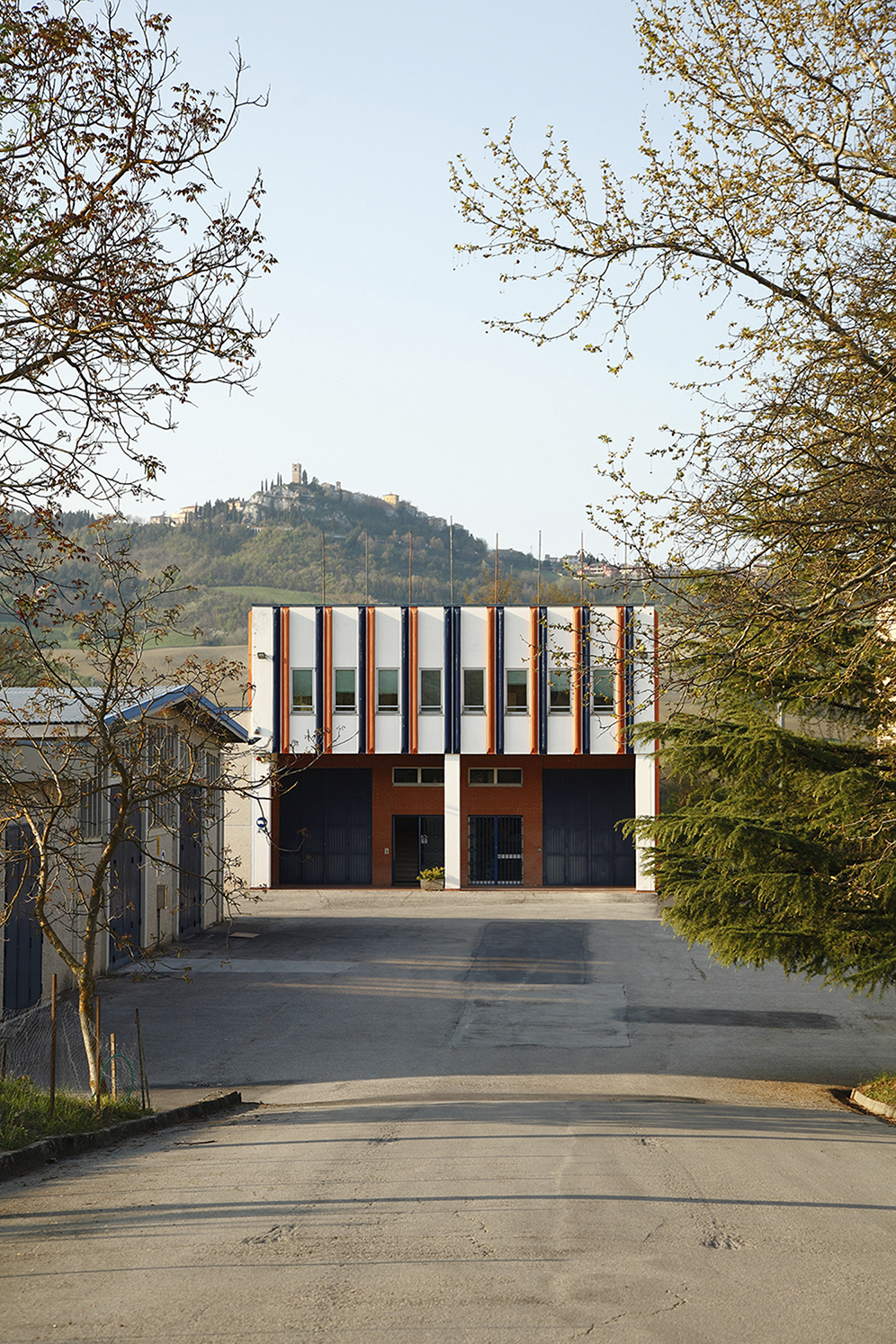
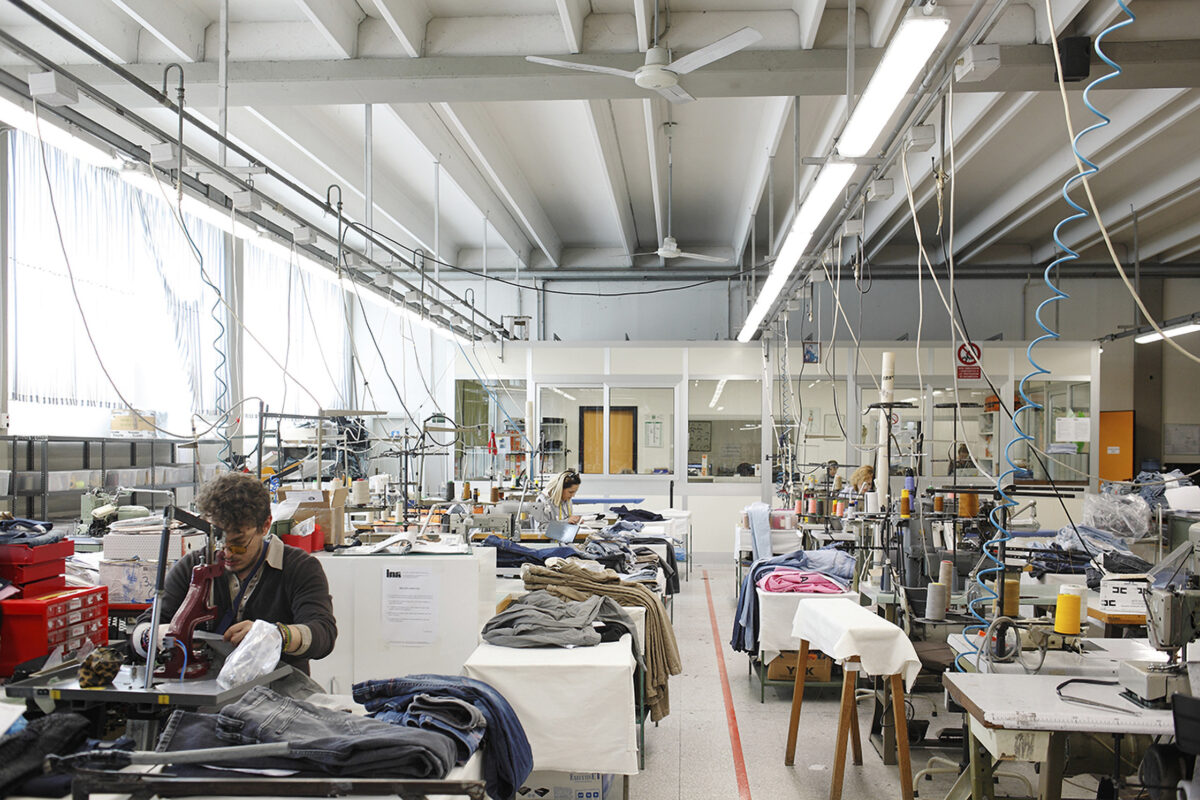
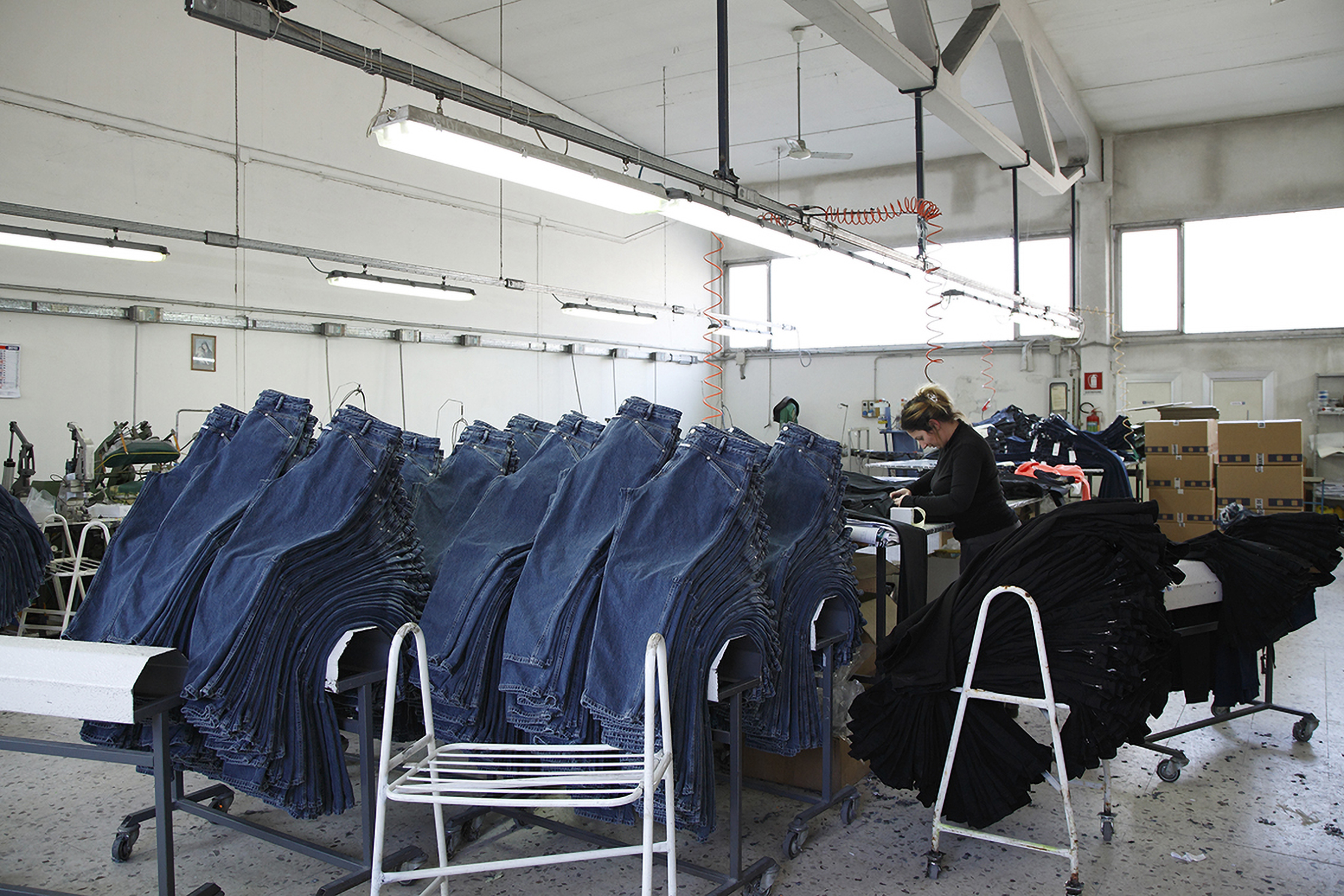
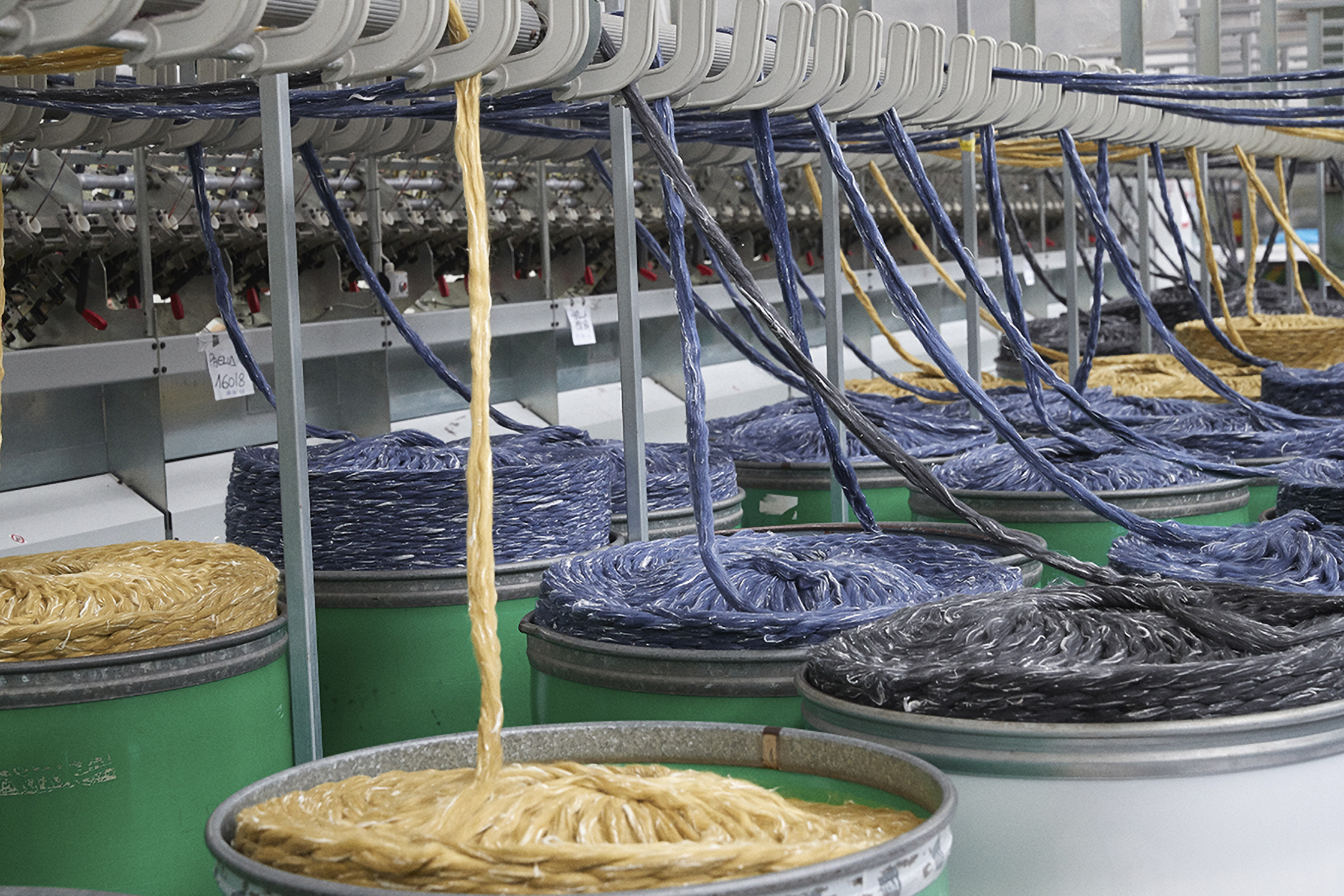
“When I started at Closed [17 years ago] there weren’t any environmentally friendly production techniques. Three years ago we began looking intensively for a more sustainable approach. It was a time when new fabrics, new dyeing and laundry treatments became energy saving and chemical saving. That was the point where we said ‘okay, let’s do this properly,’” says Uwe. A Better Blue began with two fabrics, one indigo and one black denim with three washes each—in the scheme of Closed’s seasonal collections it was a very small part of the whole denim offering. “Now it has become two thirds of our denim range so you see how quick the development has been,” he adds. “This gives me positive thoughts for the future that we will manage in say, two to three years, to make this the complete denim collection.”
Aesthetic quality still remains the end-goal for Closed and the eco-line should be no different. For this reason, it’s taken longer than anticipated to achieve the desired results. “It starts with the fabric itself. Our partner Candiani [who supply 85% of all Closed’s denim] are working on really innovative techniques that sometimes take years in the development stage,” explains Uwe. “They’ve patented certain techniques, starting from the fiber through to the dyeing process so there’s a lot of research and development.” An example of something Candiani have just launched is a stretch quality fabric made with natural rubber. “It allows them to offer the first 100% biodegradable stretch fabric, which is really a big step forward,” says Uwe.
As buying habits shift, so too does demand for a sustainable product. As Nina explains, “Our customers never used to be interested in it, they were more engaged with the style, the hand-feel, rather than if it was organic or not. But now customers are really engaged. They want to know where pieces are produced and how they are produced—that’s really the biggest change.” Uwe adds, “customers are seeking sustainable products. It’s not just a buzzword, it is really happening and the end consumer is now looking and asking for it.”
If there’s a silver lining to this global pandemic it’s the clear focus it has brought to our own values, which include consumption and, in turn, sustainability. Closed’s A Better Blue program shows a positive brand approach, one where learning ways to improve sustainable practice results in an improved product. Case in point is their latest jean, which is the first product CLOSED´s Denim Team have designed to be completely circular. “I’m curious how circularity will evolve in fashion. It’s a great direction and I hope it’s really coming for the future.” With A Better Blue, the message is clear: buy less but buy better.
“There is a conscious effort now. We have to take action and do something.”
Harnessing the latest technology for greener fabrics, Closed’s A Better Blue initiative demonstrates a new approach to designing denim. For more information on the program and their eco-friendly jeans from start to finish, check out their sustainability report and discover more of the denim range on their website and Instagram.
Text: FvF Team
Photography: Marlen Mueller, Liz Kuball

